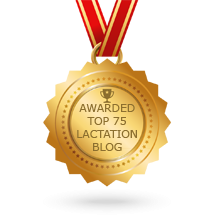Surviving the First Week: Navigating Breastfeeding Post Birth
Posted on
The first week of breastfeeding your baby is a crucial time for both you and your little one as you establish a strong breastfeeding relationship. Understanding the different stages of breastfeeding post-birth can help you navigate this emotional, challenging and rewarding journey.
1. The Early Days
In the beginning, you and your baby are just getting to know each other. Your newborn may feed frequently, often every 1-3 hours, as they work on establishing your milk supply and their own feeding rhythm. It's normal for your baby to feed for varying lengths of time during each session. Colostrum is the first milk produced by the breasts after giving birth. It is rich in nutrients, antibodies, and white blood cells, providing essential nourishment and immune protection to newborns. Colostrum is thick and yellowish in color and is low in fat but high in protein and carbohydrates. It acts as a natural laxative to help the baby pass meconium and clear out their digestive system.
2. Engorgement and Adjustments
Around day 3-5 post-birth, (although it will vary) your milk supply may increase, leading to engorged breasts. This is when your "milk comes in", it can be uncomfortable but is usually temporary. Ensuring proper latch and feeding frequently can help relieve engorgement. At this time, colostrum transitions into mature breastmilk, which has a higher fat content and continues to provide important nutrients for the baby's growth and development. The composition of breastmilk changes throughout your breastfeeding journet to meet the evolving needs of your baby, making it a unique and powerful source of nutrition.
3. Cluster Feeding
Cluster feeding, where your baby feeds more frequently for a period of time, is common during the first week and again when your baby has a growth spurt. This can be exhausting but is your baby's way of increasing your milk supply and meeting their growing needs.
4. Seeking Support
Breastfeeding is bloody hard work and let's not forget that as a new mum you've also just given birth, are quite likely sleep deprived and adjusting to life as a new parent. It is intense which is why it's important to ask for help . You can reach out for support from a lactation consultant, breastfeeding support group, or your healthcare provider. They can offer guidance, reassurance, and practical tips to help you through any challenges you may face.
Remember, every breastfeeding journey is unique, and it's okay to ask for help when needed. Stay patient, trust your instincts, and cherish these precious moments bonding with your baby during their first week of breastfeeding.


Add a comment: